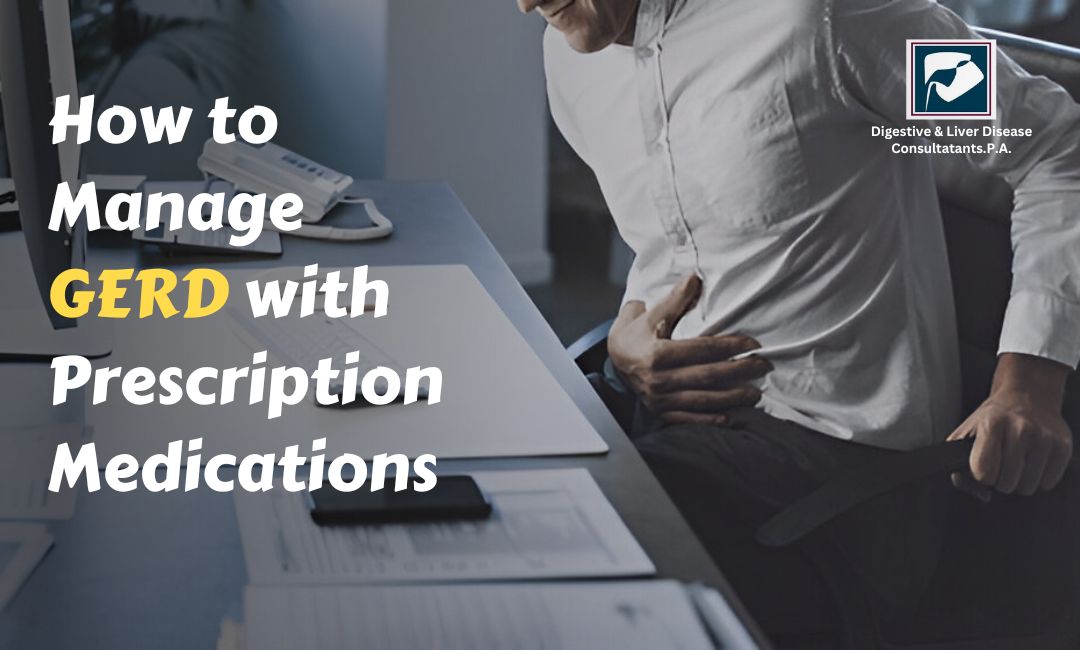Gastroesophageal reflux disease (GERD) is a chronic digestive disorder that affects millions of people. It occurs when stomach acid frequently flows back into the esophagus, causing symptoms such as heartburn, chest pain, regurgitation, and sometimes even difficulty swallowing. While lifestyle changes like avoiding trigger foods and losing weight are important, many people also need prescription medications to effectively manage their symptoms and prevent complications.
In this blog, we’ll explain how prescription medications work to treat GERD, the types of drugs commonly used, and what you can expect from your treatment. If you’re dealing with GERD, this guide can help you better understand your options and feel more in control of your health.
What Is GERD?
GERD happens when the lower esophageal sphincter (LES) – a ring of muscle between the esophagus and stomach – becomes weak or relaxes when it shouldn't. This allows acid to move up into the esophagus, which isn’t built to handle such exposure. Over time, GERD can lead to inflammation, ulcers, scarring, or even a condition called Barrett’s esophagus, which increases the risk of esophageal cancer.
When Are Prescription Medications Needed?
While occasional acid reflux is common and may be treated with over-the-counter antacids, GERD is a long-term condition that often requires stronger treatment. If you experience heartburn or acid reflux more than twice a week, or if lifestyle changes and OTC drugs don’t provide relief, your doctor may prescribe medications to help reduce acid and protect your esophagus.
Types of Prescription Medications for GERD
There are several types of prescription medications used to treat GERD. Each works in a slightly different way to reduce acid and relieve symptoms.
1. Proton Pump Inhibitors (PPIs)
PPIs are the most commonly prescribed medications for GERD. They work by blocking the enzyme in the stomach wall that produces acid. By reducing acid at the source, PPIs give the esophagus time to heal and relieve symptoms more effectively than most other treatments.
Common PPIs include:
- Omeprazole (Prilosec)
- Esomeprazole (Nexium)
- Pantoprazole (Protonix)
- Lansoprazole (Prevacid)
- Rabeprazole (AcipHex)
How to use: PPIs are usually taken once a day before a meal, often in the morning. For severe GERD, your doctor may recommend taking them twice daily.
Possible side effects:
- Headache
- Nausea
- Diarrhea or constipation
Long-term use may affect calcium, magnesium, and vitamin B12 absorption
2. H2 Receptor Blockers
H2 blockers reduce the amount of acid your stomach makes by blocking histamine receptors in the stomach lining. They are not as strong as PPIs but may be helpful for mild to moderate symptoms or used alongside PPIs for nighttime relief.
Common H2 blockers include:
- Ranitidine (Zantac) – Note: Many forms have been recalled due to safety concerns
- Famotidine (Pepcid)
- Nizatidine (Axid)
How to use: Usually taken once or twice a day. These are helpful for controlling nighttime symptoms or for people who don’t tolerate PPIs well.
Possible side effects:
- Fatigue
- Dizziness
- Diarrhea or constipation
3. Prokinetics
Prokinetic medications help strengthen the lower esophageal sphincter and speed up stomach emptying. They are sometimes prescribed when GERD symptoms are due to delayed stomach emptying (gastroparesis) or if PPIs alone are not working.
Examples include:
- Metoclopramide (Reglan)
- Domperidone (used less commonly in the U.S.)
How to use: Typically taken 30 minutes before meals and at bedtime.
Possible side effects:
- Drowsiness
- Fatigue
- Movement disorders (especially with long-term use)
4. Foaming Agents and Protectants
These medications, often used with other GERD treatments, coat the lining of the esophagus to prevent damage from acid.
Examples:
- Sucralfate (Carafate)
How to use: Taken before meals or bedtime, sucralfate helps soothe irritation in the esophagus.
Choosing the Right Medication
Every person responds differently to GERD medications. Your doctor at Digestive & Liver Disease Consultants, P.A. will evaluate your symptoms, medical history, and any underlying conditions to create a personalized treatment plan. Sometimes, a combination of medications may be necessary to get full relief.
It’s important not to self-medicate or stop your prescriptions without your doctor’s advice, as this can worsen symptoms or lead to complications.
Tips for Taking GERD Medications
Be consistent: Take your medication at the same time every day, usually before meals.
Follow instructions carefully: Some medications work best on an empty stomach, while others require food.
Avoid trigger foods: Even with medication, avoiding spicy, fatty, and acidic foods can reduce symptoms.
Don’t lie down after eating: Wait at least 2–3 hours before lying down or going to bed.
Maintain a healthy weight: Extra weight puts pressure on your stomach and can make GERD worse.
When to Seek Medical Help
If your symptoms don’t improve after several weeks of treatment, or if you experience trouble swallowing, unexplained weight loss, chest pain, or vomiting, seek medical attention. These could be signs of complications that need further evaluation.
About Digestive & Liver Disease Consultants, P.A.
At Digestive & Liver Disease Consultants, P.A., we are committed to helping patients across the Greater Houston area manage their digestive and liver conditions with advanced, compassionate care. Our board-certified gastroenterologists offer expert diagnosis and treatment for GERD and related disorders using the latest technology and evidence-based approaches. Whether you need medication, an endoscopic evaluation, or lifestyle support, we’re here to help you feel better and live healthier.
Conclusion
Prescription medications are often a key part of managing GERD, especially when symptoms are frequent or severe. With the right treatment plan, most people can find relief and avoid complications.
If you suffer from GERD and need relief, contact Digestive & Liver Disease Consultants, P.A. today. Our experienced team is ready to help you find the best treatment for lasting comfort and digestive health. Schedule an appointment and take the first step toward feeling better.






